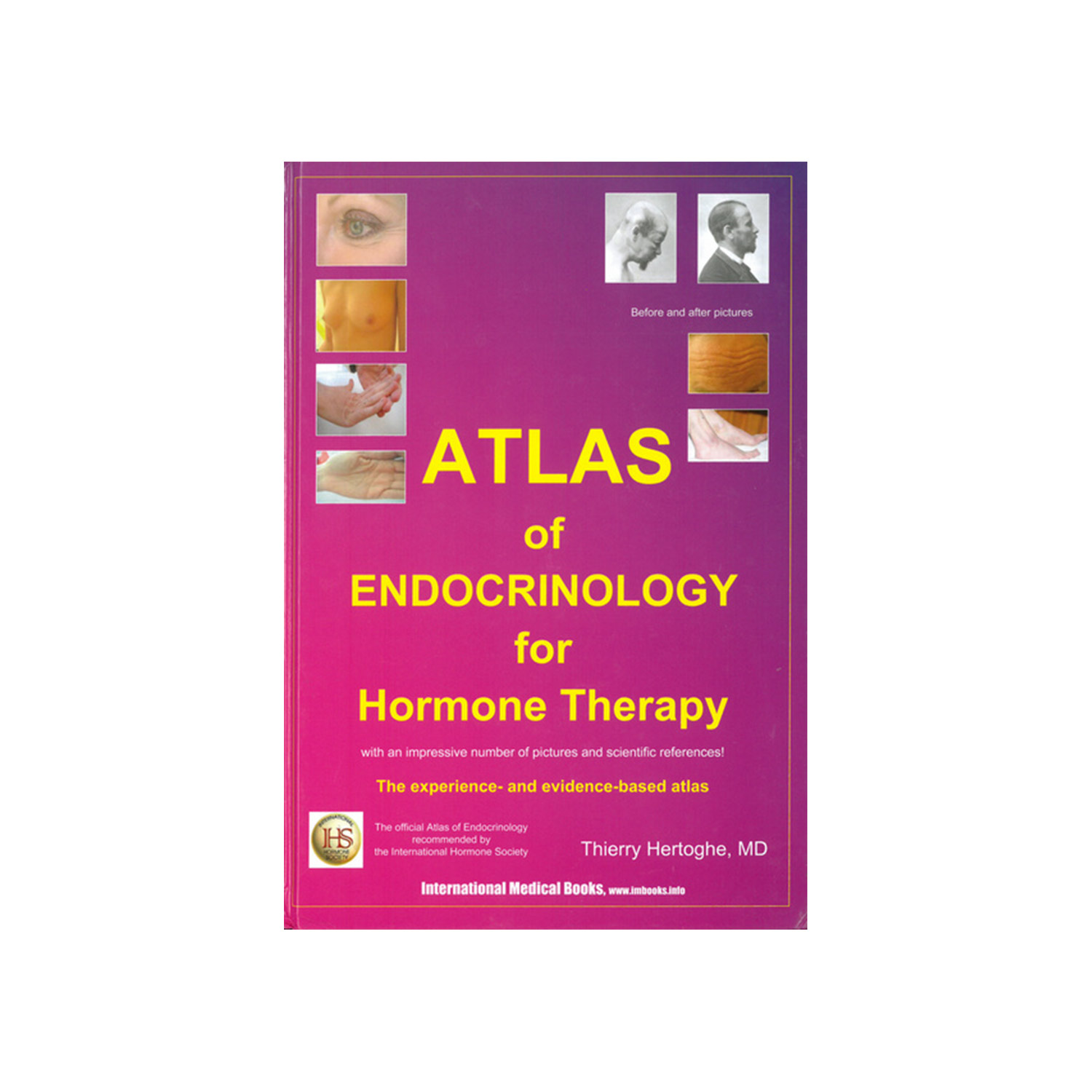Atlas of Endocrinology for Hormone Therapy By Dr Thierry Hertoghe MD
This incredible book is a pictorial guide to the physical attributes of what each hormone, whether it is in hyper or hypo activity within a patient can do.
Product Description
The Atlas of Endocrinology for Hormone Therapy shows the physical signs of hormone deficiencies and excesses that physician’s encounter in their practice and which they can relieve. The Atlas greatly benefits your practice skills.
This 2019 new edition includes 2 new chapters on Thymosin-Alpha-1 and Relaxin.
This book is essential for physicians working in hormone therapy and particularly for those who treat multiple endocrine deficiencies. It helps them further deepen their skills not only in detecting the well-known signs of severe deficiencies but also in recognizing the variety of signs of milder forms of deficiencies and excesses whose knowledge is crucial for the follow-up.
Inside of the Atlas of Endocrinology for Hormone Therapy book, the reader will find next to approximately 530 pictures of patients with physical endocrine signs, often not shown in the traditional Atlas of Endocrinology, schematic overviews of the many physical signs of deficiencies and excesses, illustrated with drawings of body shadows that make it all more comprehensible. Enclosed are also lists of typical complaints a patient may present when affected by a hormone deficiency or excess. This atlas book is unique: it also shows lists of scientific references supporting the association between signs and symptoms and their corresponding hormone deficiencies and excesses.
For this 2nd edition the scientific references, for physical signs of each endocrine pathology confirming at least in part the value and scientific evidence of clinically assessing your patient, have been completed and updated for a better use in your practice.
Below is a list of the hormones for which deficiency and excess signs and symptoms are reviewed with pictures:
- Growth hormones, IGF-1 (adults)
- MSH
- Oxytocin
- Vasopressin
- Melatonin
- Thyroid Hormones
- Calcitonin
- Parathormone
- Thymosin-alpha-1
- Cortisol, glucocorticoids
- DHEA
- Pregnenolone
- Aldosterone
- Insulin
- Estrogen in women
- Progesterone (women)
- Testosterone (women)
- Testosterone (men)
- Progesterone (men)
- Relaxin
